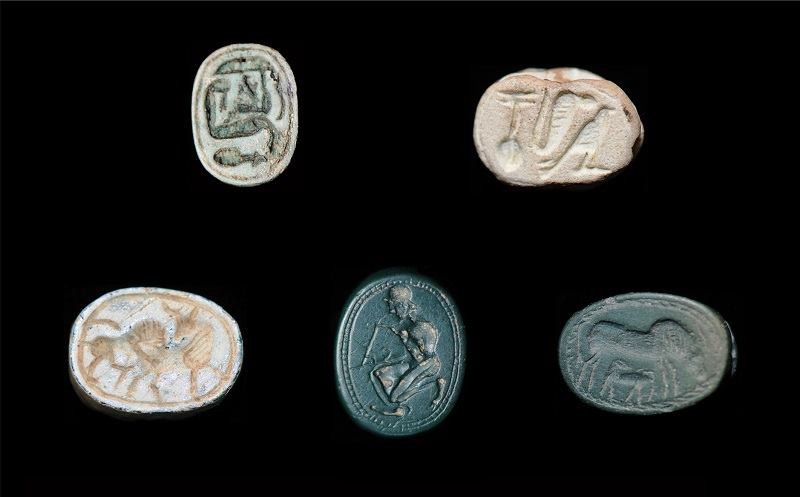Scarabs

Scarabs
“Here rise the Pillars of Hercules, which, as one can read, are reckoned to be the boundaries of each continent. They are, also, two equally projecting rocky mountains, Abyla and Calpe.” (Avienus. Ora Maritima. 4th century BCE)
The Pillars of Herakles (Hercules) were important geographical landmarks loaded with significant symbolism; an area grounded in the myths and legends of the ancient Mediterranean civilisations, and the Strait of Gibraltar marked, for them, the western limits of the known and civilised world.
These Pillars are today’s Jebel Musa (Mons Abyla) on the African coast and the Rock of Gibraltar (Mons Calpe) on European shores. Gorham’s Cave, as we know, is located at the base of the latter and first functioned as a shrine for the Phoenicians, later serving other cultures, becoming one of the most important shrine-caves across the whole Mediterranean.
The artefacts recovered from Gorham’s Cave, are testimony to the accumulation of offerings and as a result of other rituals carried out by ancient mariners, such as ceramics, scarabs, rings, fibulae and necklaces.
Gorham’s Cave has provided us with one of the most important collections of scarabs in the Iberian Peninsula.
The scarabs in the image came from the shrine at Gorham’s Cave. The first two are Egyptian in origin, with engraved hieroglyphs, and are from the shrine’s earlier phases (9th to 6th century BCE). You can also see ones with a lion hunting an antelope, a hoplite (Ancient Greek soldier) and finally a mare suckling her foal. These are known as pseudo-Egyptian scarabs. They are more recent, and although they mimic the earlier versions, they do not originate from Egypt.
We hope you like them!
Published: March 19, 2020
Other similar VM - Archaeology
18-20 Bomb House Lane
PO Box 939,
Gibraltar
